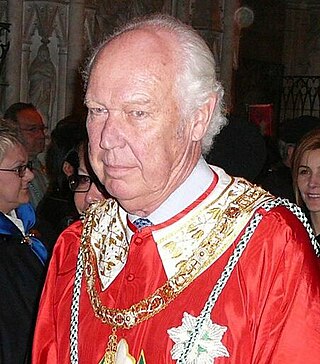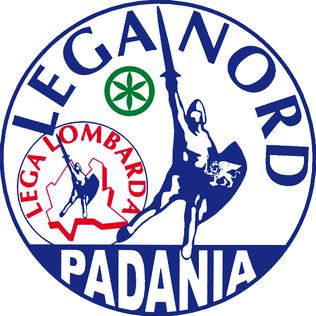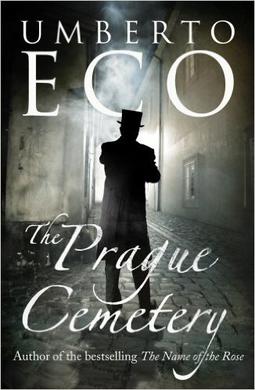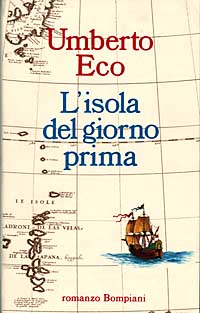
Umberto Eco was an Italian medievalist, philosopher, semiotician, novelist, cultural critic, and political and social commentator. In English, he is best known for his popular 1980 novel The Name of the Rose, a historical mystery combining semiotics in fiction with biblical analysis, medieval studies and literary theory, as well as Foucault's Pendulum, his 1988 novel which touches on similar themes.

Cesare Zavattini was an Italian screenwriter and one of the first theorists and proponents of the Neorealist movement in Italian cinema.

Prince Vittorio Emanuele of Savoy, Prince of Naples, was the only son of Umberto II, the last King of Italy, and Marie-José of Belgium. Vittorio Emanuele also used the title Duke of Savoy and claimed the headship of the House of Savoy. These claims were disputed by supporters of his third cousin, Prince Amedeo, Duke of Aosta, and later by Amedeo's son, Aimone.

Foucault's Pendulum is a novel by Italian writer and philosopher Umberto Eco. It was first published in 1988, with an English translation by William Weaver being published a year later.

Francesco Guccini is an Italian singer, songwriter, actor, and writer. During the five decades of his music career he has recorded 16 studio albums and collections, and 6 live albums. He is also a writer, having published autobiographic and noir novels, and a comics writer. Guccini also worked as actor, soundtrack composer, lexicographer and dialectologist.

Prince Luigi Amedeo, Duke of the Abruzzi, was an Italian mountaineer and explorer, briefly Infante of Spain as son of Amadeo I of Spain, member of the royal House of Savoy and cousin of the Italian King Victor Emmanuel III. He is known for his Arctic explorations and for his mountaineering expeditions, particularly to Mount Saint Elias and K2. He also served as an Italian admiral during World War I. He created Villaggio Duca degli Abruzzi in Italian Somalia during his last years of life.
William Fense Weaver was an English language translator of modern Italian literature.

The Casinò di Campione is one of Italy's oldest Casinos, as well as Europe’s largest casino and the largest employer in the municipality of Campione d'Italia, an Italian exclave within Switzerland's Canton of Ticino, on the shores of Lake Lugano.

Lega Lombarda, whose complete name is Lega Lombarda per Salvini Premier, is a regionalist political party active in Lombardy. Established in 1984, it was one of the founding "national" sections of Lega Nord (LN) in 1991 and has been the regional section of Lega per Salvini Premier (LSP) in Lombardy since 2020. Along with Liga Veneta, the LL has formed the bulk of the federal party (LN/LSP), which has been led by Lombards since its foundation.

Raffaele La Capria was an Italian novelist and screenwriter.

Roberto Pazzi was an Italian novelist and poet. His works have been translated into twenty-six languages. He was widely recognized in Italian literary circles for his poetry and novels. His Debut novel, Cercando l'Imperatore in 1985, received a number of international awards and started a prolific career of historical and contemporary novels.

Franco Fabrizi was an Italian actor.
Elena Alexandrovna Kostioukovitch, is an essayist and literary translator. She is the winner of numerous literary awards, including the Best Translation of the Year in the USSR (1988), Zoil (1999), Grinzane Cavour Moscow (2004), Welcome Prize (2005) given by the Russian National Association of Restaurateurs, Bancarella (cucina) Award, Chiavari Literary Prize, and Premi Nazionali per la Traduzione. Resides with her husband and two children in Milan, Italy.
This is a list of works published by Umberto Eco.

The Emanuele Filiberto was a pre-dreadnought battleship built for the Italian Navy during the 1890s. Her keel was laid down in October 1893 and she was launched in September 1897; work was completed in April 1902. She had one sister ship, Ammiraglio di Saint Bon, the lead ship of the Ammiraglio di Saint Bon class. She was armed with a main battery of four 254 mm (10 in) guns and was capable of a speed in excess of 18 knots.

The Prague Cemetery is a novel by Italian author Umberto Eco. It was first published in October 2010; the English translation by Richard Dixon appeared a year later. Shortlisted for the Independent Foreign Fiction Prize in 2012, it has been described as Eco's best novel since The Name of the Rose.
The Nastro d'Argento is a film award assigned each year, since 1948, by Sindacato Nazionale dei Giornalisti Cinematografici Italiani, the association of Italian film critics.

Franco, Ciccio e il pirata Barbanera is a 1969 Italian comedy film directed by Mario Amendola starring the comic duo Franco and Ciccio. It is a parody of the 1883 adventure novel Treasure Island of Scottish author Robert Louis Stevenson.
Richard Dixon is an English translator of Italian literature. He translated the last works of Umberto Eco, including his novels The Prague Cemetery, shortlisted for the Independent Foreign Fiction Prize 2012, and Numero Zero, commended by the judges of the John Florio Prize, 2016. He has also translated works by Giacomo Leopardi, Roberto Calasso and Antonio Moresco.

The Name of the Rose is a historical drama television miniseries created and directed by Giacomo Battiato for RAI. It is based on the 1980 international bestseller novel of the same name by Umberto Eco. The series stars John Turturro as William of Baskerville and Rupert Everett as Bernard Gui. It was co-produced by Italian production companies 11 Marzo Film and Palomar, and distributed internationally by the Tele München Group.















